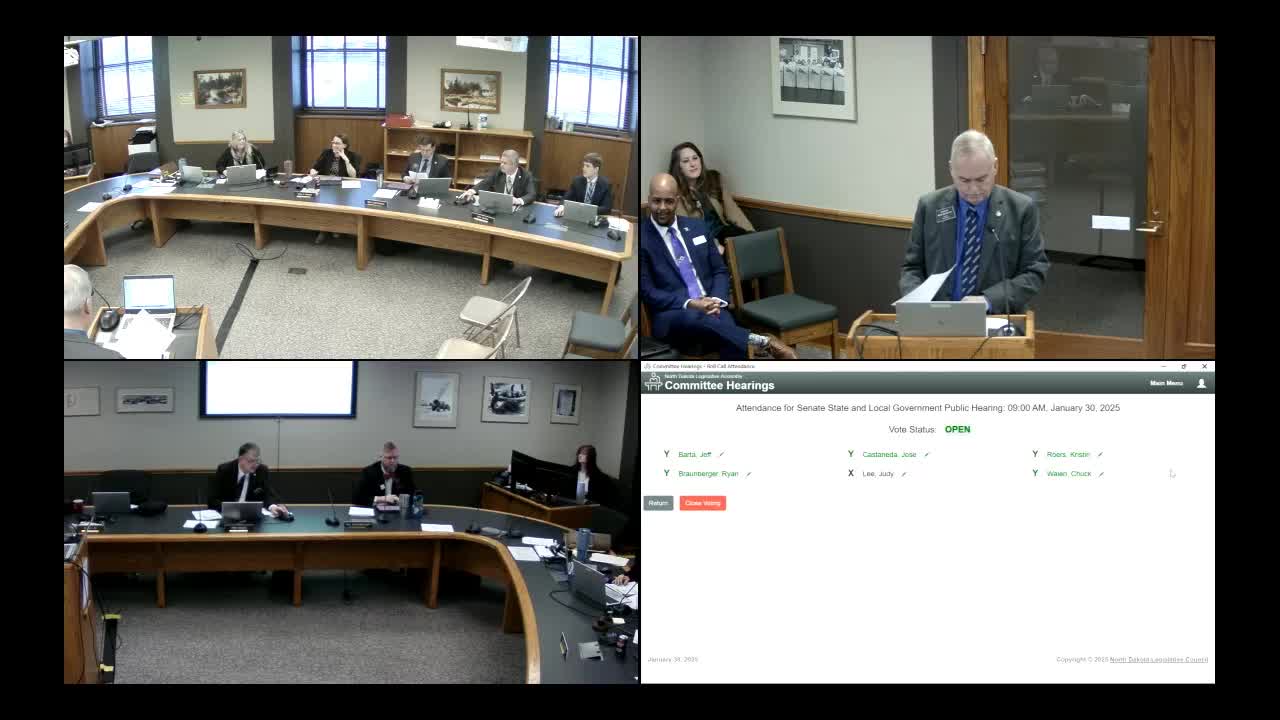Article not found
This article is no longer available. But don't worry—we've gathered other articles that discuss the same topic.
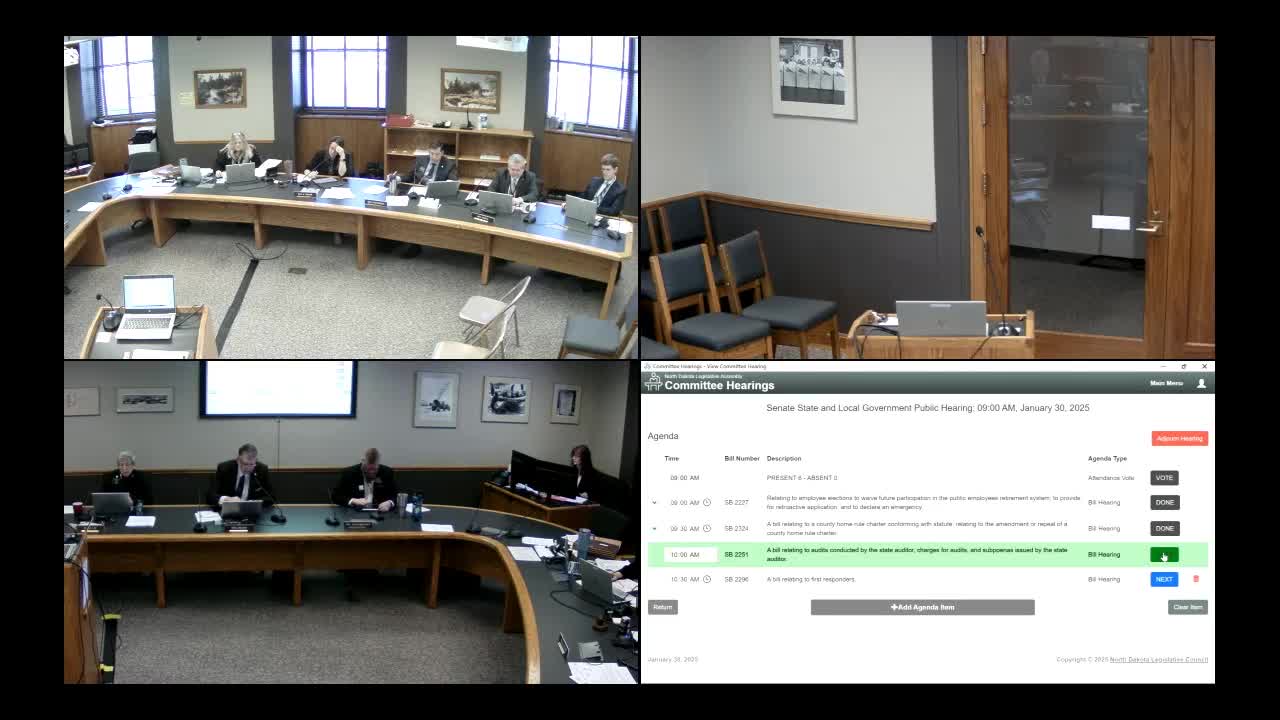
Committee adopts amendments to Silver Alert bill to clarify 'endangered individual' standard
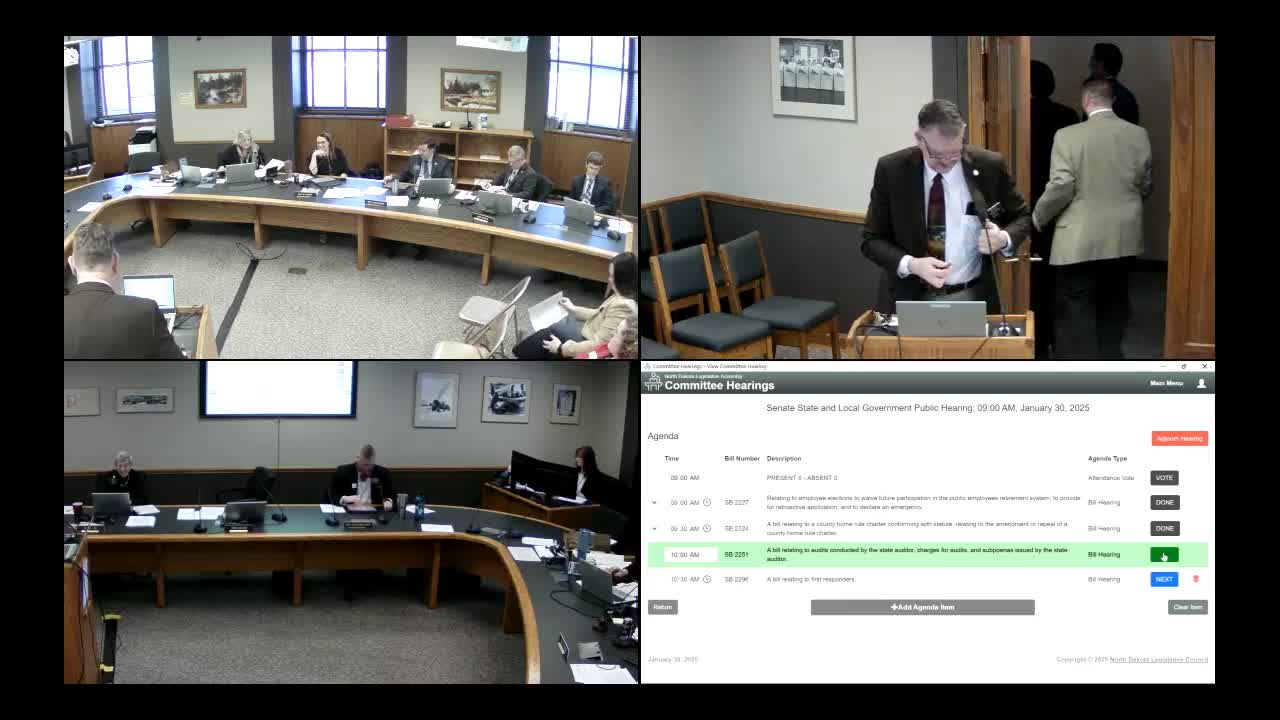
Bill to recognize 911 telecommunicators as first responders sparks legal and drafting questions
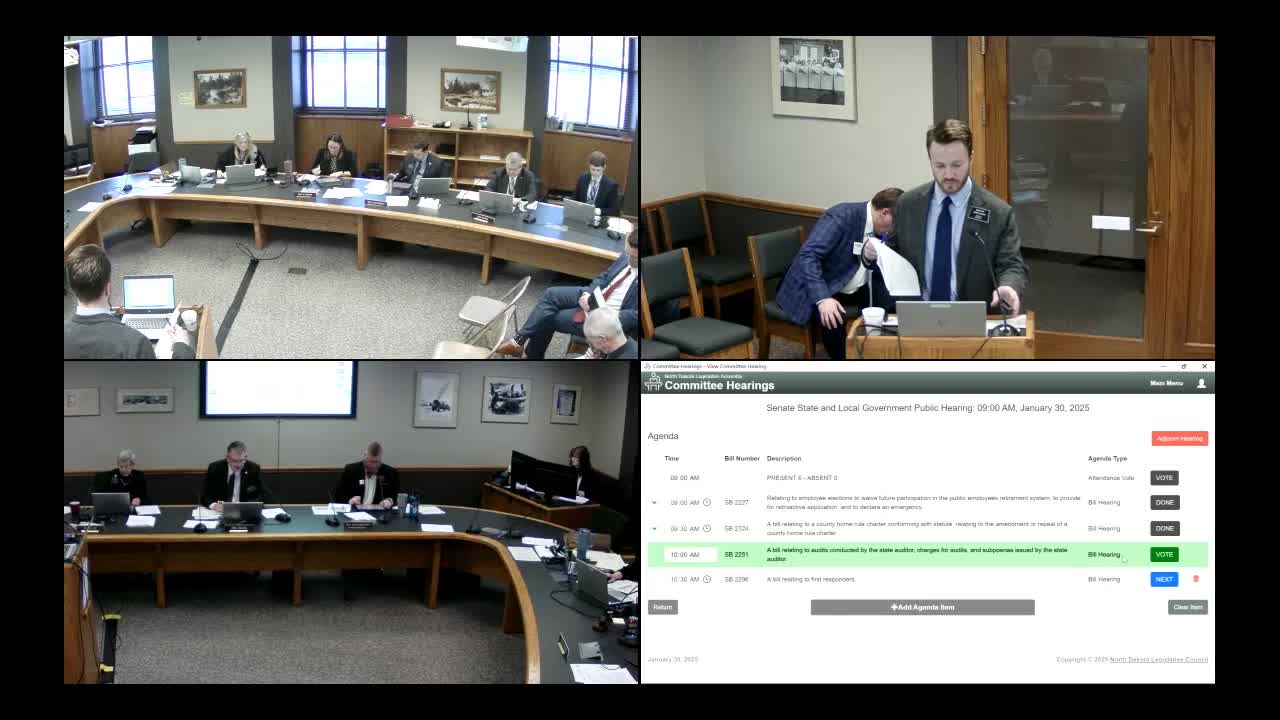
Bill to update state auditor authorities advances after debate on subpoena power and audit fees
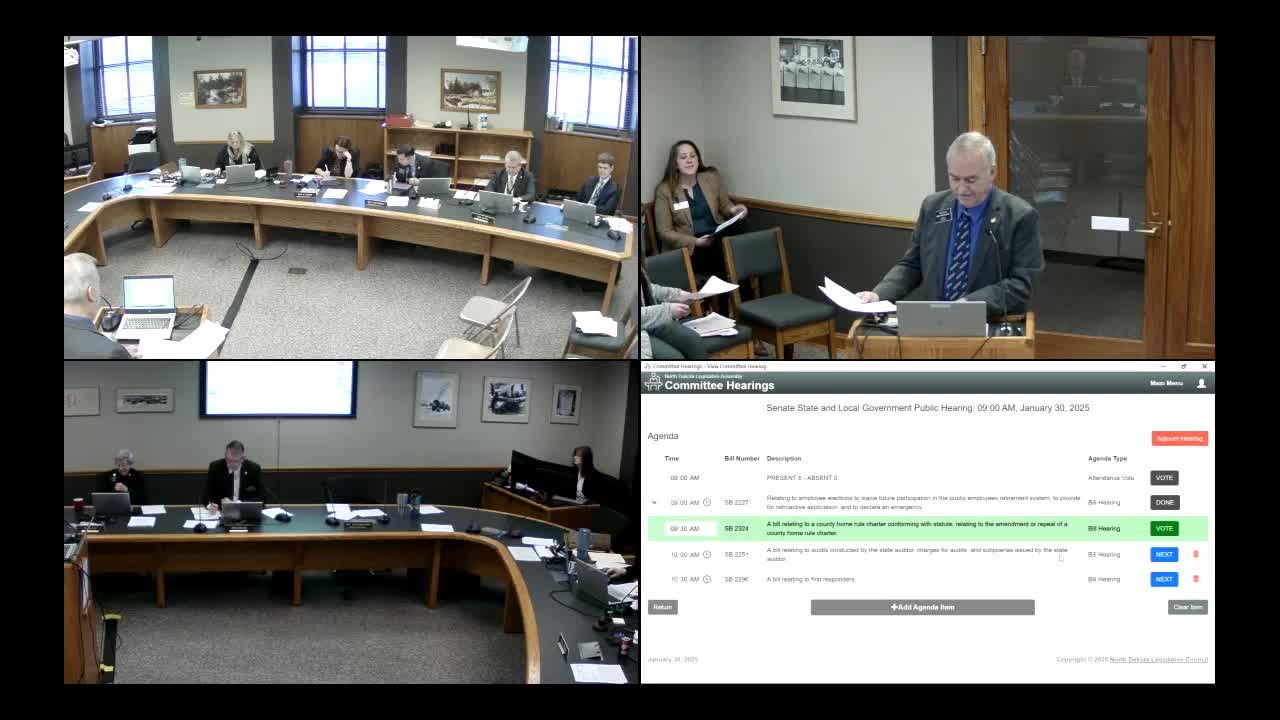
Committee approves bill letting cities, counties fix outdated home rule language by resolution
